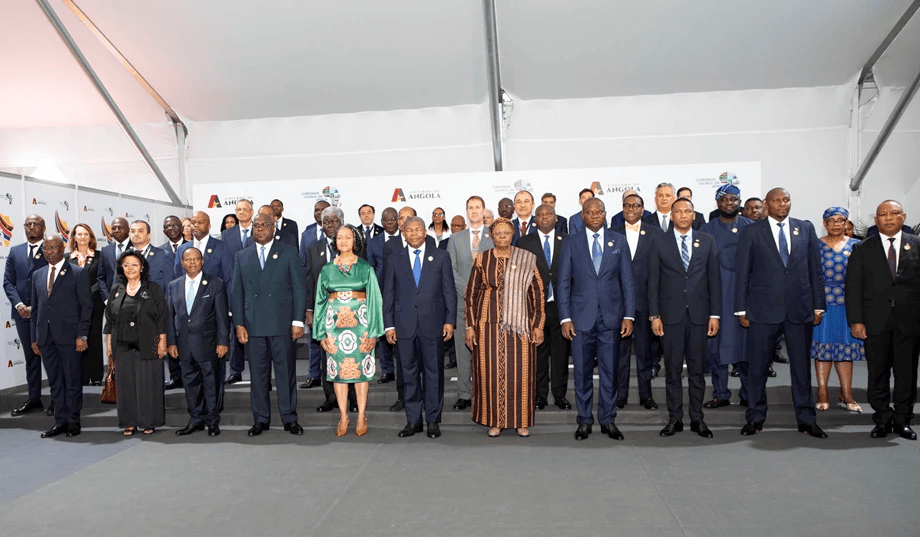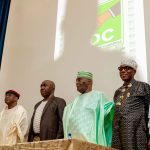
African Leaders Push Back at 2025 Luanda Summit, Forcing U.S. to Rethink ‘Aid Over Trade’ Approach as Demands for Investment and Equal Partnership Grow

The United States has signalled a partial shift in its foreign policy toward Africa following a tense and unusually confrontational 17th U.S.-Africa Business Summit, held from June 22 to 25 in Luanda, Angola. The summit, organised by the Corporate Council on Africa, saw African leaders sharply criticise long-standing American aid-focused strategies and demand a new framework based on trade, investment, and mutual respect.
According to a press statement released on June 30 by the U.S. Department of State, the Trump administration is now prioritising “trade over aid” in its dealings with the African continent and aims to engage African nations “as peers and partners in investment-led growth.” The announcement came in response to strong statements made by several African leaders who challenged the relevance and efficacy of U.S. development assistance policies.
Ambassador Troy Fitrell, the Senior Bureau Official for African Affairs and leader of the U.S. delegation, acknowledged the long-standing imbalance in U.S. policy.
For too long, U.S. policy has prioritised development assistance over commercial engagement,” he said during the summit. “We will continue to support development, but through expanded trade and private enterprise. Because business, not aid, drives lasting growth.”
Setting the tone early in the summit, the host nation’s President João Lourenço stated in his opening remarks that it was time to “replace the logic of aid with the logic of ambition and private investment.” Several other high-profile African leaders echoed his comments.
Mahmoud Ali Yusuf, Chairman of the African Union Commission, declared,
We are not looking for aid, but for jointly developed solutions.”
He called for the abolition of punitive tariffs and restrictive visa policies, emphasising that Africa’s 1.3 billion people and abundant natural resources represented one of the world’s most significant untapped economic opportunities.
Akinwumi Adesina, President of the African Development Bank Group, added that current trade conditions were stifling growth.
We must reconsider the high tariffs on African countries. There must be more trade between Africa and the United States, not less,” he urged.
The summit, initially expected to be a typical trade forum, quickly evolved into a confrontation over the nature of U.S.-Africa relations. Rather than sidestepping the criticism, the U.S. delegation acknowledged the need for a new approach, resulting in the publicised intention to refocus its efforts on private-sector engagement.
As part of this shift, the U.S. State Department announced the summit resulted in $2.5 billion worth of new deals. These include a major project by Amer-Con Corporation to develop grain silo infrastructure in Angola, as well as a $1.5 billion partnership with the Angolan government to construct a Hydro-Link transmission line. Other unnamed deals were also reportedly reached. The U.S. presented these as part of a broader effort to pivot toward investment-led partnerships and commercial diplomacy.
However, despite the high-profile deals and strategic reframing, the scale of U.S. engagement still falls short when compared to China’s economic involvement in Africa. In 2023 alone, trade between China and Africa reached $282 billion. While the U.S. now seeks to brand itself as a trade partner, the nature of some projects, such as the 22 grain silo terminals to be constructed along Angola’s Lobito Corridor, suggests that the American self-interest still dominates the agenda.
While the State Department emphasised its desire to align U.S. foreign policy with African priorities, such as food security, energy, and industrial development, many remain sceptical about whether the shift is substantive or symbolic. The modest scale of the investments and the export-oriented infrastructure highlight that what is being described as a “policy adjustment” may, in practice, be a recalibration rather than a transformation.
The 2025 U.S.-Africa Business Summit may go down as a pivotal moment in transatlantic diplomacy. What was meant to be a promotional trade event evolved into a rare platform for African leaders to challenge a global superpower and to be heard. Whether Washington’s latest pivot will lead to lasting change in its engagement with Africa remains to be seen. But one message rang clear in Luanda:
African nations are no longer content with passive roles in international partnerships. They are demanding a seat at the table, on equal terms.
Read More:
- The APC Effect: 10 Years That Crippled Nigeria’s Economic Future
- Big Brother Naija Director Gbenga Kayode Makes Nollywood Debut With “Bendel Girl”
About The Author
Mayowa Durosinmi
author
M. Durosinmi is a West Africa Weekly investigative reporter covering Politics, Human Rights, Health, and Security in West Africa and the Sahel Region
Mayowa Durosinmi
M. Durosinmi is a West Africa Weekly investigative reporter covering Politics, Human Rights, Health, and Security in West Africa and the Sahel Region
Related Articles
Asake Sets New Billboard Afrobeats Record as Chart Presence Grows
Asake has further cemented his place as one of Afrobeats’ most dominant...
ByWest Africa WeeklyJanuary 29, 2026Nigerians Lament PayPal’s Return as Old Wounds Resurface
PayPal’s reentry into Nigeria through a partnership with local fintech company Paga...
ByWest Africa WeeklyJanuary 29, 2026Tanzania Eyes Gold Sales as Aid Declines and Infrastructure Needs Grow
Tanzania is weighing plans to sell part of its gold reserves to...
ByWest Africa WeeklyJanuary 29, 2026Mali Tightens Grip on Explosives Supply With New Majority Stake
The Malian government has taken majority ownership of a civil explosives manufacturing...
ByWest Africa WeeklyJanuary 29, 2026












Leave a comment